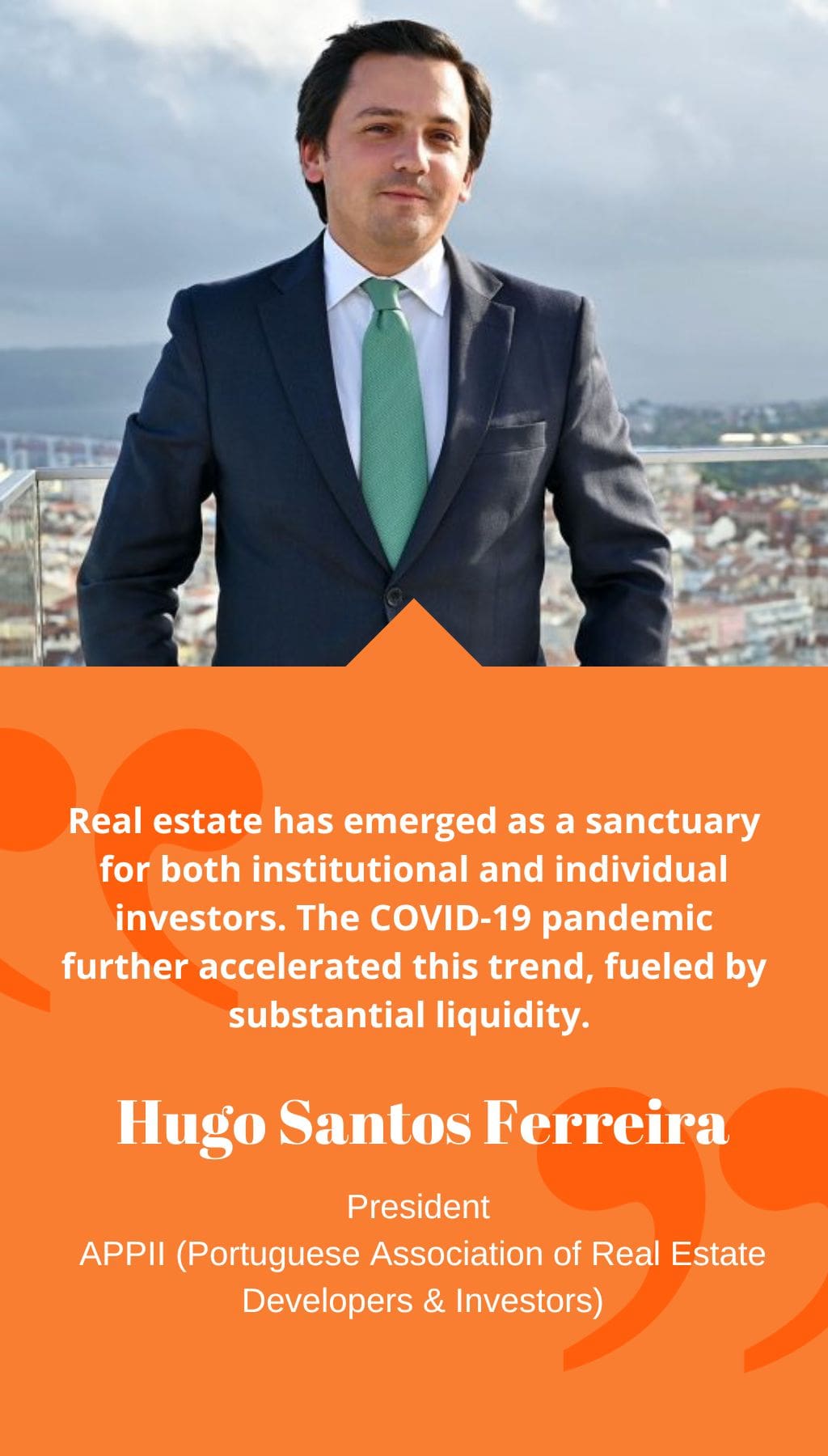
- Portugal | 24 March 2022

Balancing the diverse interests of APPII’s member companies, considering their significant contribution to Portugal’s economy, must be challenging. How do you manage this?
Indeed, our 200 members represent a substantial portion, around 15% of Portugal’s GDP (and approximately 17.4% if we include the construction segment). This contribution is equivalent to what tourism brings to the country. Approximately half of our members comprise foreign entities, including REITs, private family offices from the UK, Spain, Brazil, China, the Middle East, and a variety of international institutional investors.
Our primary objective is to ensure that these entities feel welcomed while serving as the main entry point into Portugal’s business environment. We’ve developed programs like the Golden Visa and the Non-Habitual Tax Resident Program (NHR) to attract foreign investment, contributing significantly to an annual investment of EUR 5 billion by private investors alone.
With a substantial 50% share of foreign investment in the industry, what factors, in your opinion, attract these international players to Portugal?
Real estate has emerged as a sanctuary for both institutional and individual investors. The COVID-19 pandemic further accelerated this trend, fueled by substantial liquidity. Portugal holds appeal for private investors due to its rich history spanning 900 years, picturesque coastlines extending over 1,000 kilometers, favorable tax regulations, and its multilingual population. Programs like the Golden Visa and NHR have significantly opened doors for global citizens to Portugal, drawing EUR 700 million in investments solely through the Golden Visa in 2019.
The Golden Visa allows non-EU citizens entry into the Schengen zone, offering pathways to permanent residency and eventual citizenship. The NHR program entices investors by granting tax exemptions for those residing in Portugal for a significant part of the year, sometimes up to ten years.
Moreover, Portugal’s real estate market remains competitively priced and consistently growing, evident in residential price increments of 4.8% from December 2019 to December 2020.
There have been discussions within the EU regarding the Golden Visa program. Can you elaborate on the ongoing discourse?
Effective from January 1, 2022, the current law undergoes amendments to promote investments in Portugal’s interior regions, offering a 20% discount on minimum investment in select cities. Residential investments along the coast, including Lisbon and Porto, necessitate involvement through private equity funds. However, this change does not impact investments in short-term holiday housing, offices, retail, or industrial sectors.
While there were calls, notably from left-wing parties, to terminate the Golden Visa program, the majority in Parliament overruled this request last year. The prevailing sentiment within the Portuguese government aligns with maintaining the program, acknowledging its positive economic impact, as repeatedly emphasized by the Prime Minister.
What’s the current opportunity in Portugal’s commercial real estate sector, considering the fluctuations seen across Europe?
In 2019, commercial real estate investments in Portugal reached EUR 3.3 billion. Logistics emerged as the pandemic’s favored asset class, demonstrating consistent growth. Major European entities, foreseeing future trends, expanded their presence in the Iberian Peninsula, especially in last-mile logistics, by early 2020.
While offices experienced a surge in 2019 and ongoing projects persisted in 2020, the industry presently operates in a cautious “wait and see” mode. Similarly, retail faces transformation, particularly shopping centers, which were already evolving pre-pandemic, now accentuated by e-commerce. Portugal’s street retail and urban revitalization necessitate a reevaluation of retail asset classes by investors.
What are APPII’s key objectives for the next two to three years?
Our paramount goal is to emphasize to the public that real estate stands as a fundamental pillar of Portugal’s economy and future. As entrepreneurs, developers, and investors, we are committed to shaping urban landscapes while prioritizing sustainable practices. This long-term vision strengthens Portugal’s position globally and solidifies it as a premier destination for foreign investment.














